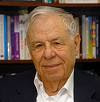Implications of the Local Agenda 21
What is "Local Agenda 21"?.
Local Agenda 21 is the mandate
to local governments to translate
the United Nations Action Plan
for the 21st century (Agenda 21)
to the local level.
"Agenda 21 is an action programme that has to be implemented by governments, UN agencies, local and regional administrators, organisations in the community and the general public. Governments are required to promote the dialogue among these players. But local government, too, closest as it is to the public at large, has a responsibility and has been allocated a major role in providing information, education and mobilising the general public to achieve sustainable development. One of the objectives of Agenda 21 is that every local government in 1996 should draw up its own Local Agenda 21 in close consultation with its citizens." Source: The Hague's Local Agenda 21 Plan
"Preparing a LA21 Plan involves the development of an environmental management strategy and action plan based on the principals of sustainable development and community participation." Source: Durban, RSA - LA21 Plan
"Underlying the Earth summit agreements (Rio-1is the idea that humanity has reached a turning point. We can continue with present policies which are deepening economic divisions within and between countries - which increase poverty, hungar, sickness, and illiteracy and cause the continuing deterioration of the ecosystem on which life on earth depends."
"By taking action now, we can improve the living standards of those who are in need. We can protect, manage and improve the ecosystem to help bring a more prosperous future. Agenda 21 was established as a method of global action, taking us into the 21st century. Those involved range from; Governments, United Nations, development agencies, non-governmnet organisations (NGO's), and independent sector groups. Agenda 21 filters down to local areas revolving around the forming of partnerships with local communities. Its level of success partly dependent upon the level of commitment and cooperation from local councils." Source: Derby, UK - LA21 Plan
"Safeguarding the environment is a key feature of Agenda 21, including issues like pollution, waste management and the protection of the oceans and freshwater resources. Agenda 21 also recognises the interdependence of environmental, social, health and economic issues, emphasising that all people have the right to food, health care, shelter and education. Agenda 21 suggests new ways in which different groups can be involved in the decision making process." Glasgow, UK - LA21 Plan
* Local Agenda 21 is the process that aims to involve local people and communities in the design of a way of life that can be sustained and thus protect the quality of life for future generations. It originates from the Earth Summit held in Rio in 1992 which led to the agreement of an Agenda 21 document detailing a series of strategies for action worldwide.
* Local Agenda 21 is a process that aims to integrate the social, environmental and economic aspects of development in order that all future development is 'sustainable'. It requires all of us to consider the effects - on the local economy, the local environment and the local community - of every policy and project and then to seek a solution that achieves a realistic balance.
* Local Agenda 21 is a highly democratic, consensus-building and empowering process. It seeks to strengthen the role of all major groups in society, including children, youth and women. It sets out to develop and build on partnerships between groups in the local community and to make linkages between parallel processes such as Social Needs and Health for All policy work.
* Local Agenda 21 is essentially about 'quality of life': which is perhaps a more friendly term to describe its primary goal. It is a process that asks those of us in local government to work in partnership with the local community to develop a strategy comprising a series of action plans which will set out how we will work together towards the goal of sustainable development in the twenty-first century and beyond." Source: Rushmoor Local Agenda 21
Contact: Hari Srinivas - hsrinivas@gdrc.org
Thursday, July 3, 2008
The Local Agenda 21 conspiracy
Just in case anyone still thinks regional integration is our only threat, I figured I'd add a few quotes about the emerging communitarian synthesis from an official LA21-UK site: http://www.gdrc.org/uem/la21/implications.html
Subscribe to:
Post Comments (Atom)













No comments:
Post a Comment